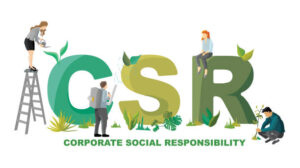In the world of business, contentious issues often arise that spark passionate debates among professionals, policymakers, and the general public. These debates encompass a wide range of topics, from ethical dilemmas to economic policies, and they can shape the course of industries, economies, and even societies. In this article, we will delve into some of the most debated business topics, exploring the arguments from both sides.
-
Minimum Wage
 (Photo from iStock)
(Photo from iStock)
One of the perennially debated business topics is the minimum wage. Supporters argue that raising the minimum wage can help reduce income inequality, improve workers’ quality of life, and stimulate consumer spending. They contend that when low-wage workers earn more, they are less reliant on social welfare programs, which, in turn, reduces the burden on taxpayers.
On the other side of the debate, opponents argue that increasing the minimum wage can lead to job loss, as businesses may struggle to absorb the higher labour costs. Small businesses, in particular, may face the challenge of staying afloat, which could result in reduced job opportunities for low-skilled workers. Furthermore, they suggest that minimum wage hikes may contribute to inflation, potentially eroding any gains made by low-wage workers. Resolving this can eradicate any type of arguments at workplace, so this becomes important for resolving arguments.
-
Climate Change and Sustainability
The discussion of business’s role in addressing climate change and promoting sustainability has gained significant momentum in recent years. Advocates argue that companies should adopt sustainable practices and invest in renewable energy sources to reduce their carbon footprint. They assert that businesses have a moral obligation to protect the environment for future generations and can benefit from adopting eco-friendly practices, such as attracting environmentally conscious consumers and investors.
-
Automation and Job Displacement
The advent of automation and artificial intelligence has sparked debates about the impact of technology on the job market. Advocates for automation suggest that it can increase efficiency, reduce human error, and free up employees to engage in more creative and meaningful tasks. They argue that embracing automation can lead to economic growth and a higher standard of living.
Conversely, critics fear that automation could lead to widespread job displacement, particularly among low-skilled workers. They argue that while automation can create new jobs, the transition period can be painful for many workers who may not have the skills needed for the emerging job market. They also worry about the potential for further income inequality, as those with the necessary technical skills may benefit more from automation.
-
Intellectual Property and Patent Rights
 (Photo from iStock)
(Photo from iStock)
The protection of intellectual property and patent rights is a topic that continues to stir controversy. Proponents of strong intellectual property protection argue that it encourages innovation by providing creators with financial incentives to invest in research and development. They contend that this system allows companies and individuals to profit from their inventions and creative works, driving economic growth.
-
Big Tech Regulation
The tech industry, dominated by giants like Google, Amazon, Facebook, and Apple, has come under scrutiny for its market power and data privacy practices. Supporters of stricter regulation argue that these tech companies have become too influential, potentially stifling competition and innovation. They believe that regulating the tech industry can promote fair competition, protect user privacy, and prevent abuses of power.
Opponents of increased regulation worry that it could have unintended consequences, such as inhibiting innovation and investment in the tech sector. They argue that these companies have played a vital role in the global economy, creating jobs and driving economic growth. Stricter regulations may discourage new entrants into the market and lead to a less dynamic and competitive tech industry.
-
Universal Basic Income (UBI)
The idea of providing all citizens with a guaranteed income, often referred to as Universal Basic Income (UBI), has gained traction as a potential solution to address poverty and income inequality. Proponents argue that a UBI can serve as a safety net, ensuring that everyone’s basic needs are met, reducing poverty, and enabling people to pursue more meaningful work or invest in education and entrepreneurship.
-
Corporate Social Responsibility (CSR)
 (Photo from iStock)
(Photo from iStock)
Corporate Social Responsibility (CSR) refers to a company’s commitment to ethical and responsible business practices. Often extending beyond profit generation to include philanthropy, environmental stewardship. And social initiatives. Supporters argue that CSR is essential for businesses to contribute positively to society. Enhance their reputation, and engage with socially conscious consumers. They suggest that companies that prioritize CSR can create lasting value and help address societal challenges.
Critics of CSR argue that businesses should focus primarily on profit generation and shareholder returns. They contend that companies engaging in philanthropy. And social initiatives divert resources from their core mission, potentially leading to inefficiencies. And reduced competitiveness. They assert that a company’s primary responsibility is to its shareholders. And employees, and any surplus resources should be directed toward maximizing profits.
-
Globalization
The concept of globalization, characterized by the free flow of goods, services, capital. And information across borders, has long been a subject of debate. Meanwhile, proponents argue that globalization can lead to economic growth by expanding markets, increasing efficiency, and fostering international cooperation. They suggest that it allows countries to specialize in their areas of comparative advantage, benefiting from global trade.
On the other side of the debate, critics raise concerns about the negative consequences of globalization. Further they argue that it can lead to job outsourcing, wage stagnation, and increased income inequality in some countries. Additionally, they contend that globalization can undermine local cultures and lead to the exploitation of workers in less-regulated markets.
Conclusion
Debatable business topics remain at the forefront of discussions in the business world, shaping policies, practices. Certainly, public opinion. While these debates can be contentious. Exploring arguments from both sides is crucial. To finding balanced solutions that take into account the complex nuances of each issue. In many cases, the ideal approach may involve striking a balance between competing interests. Evidently, to achieve the most beneficial outcomes for businesses, workers, and society as a whole. As these debates continue to evolve, it’s essential to remain open to diverse perspectives. Moreover, can engage in constructive dialogue to navigate the ever-changing landscape of business ethics, policies, and practices. Such arguments can be easily resolved, as arguments ruin the environment.
Reference:
Indeed
Making your home fireproof is important, searching for some effective tips?, your wait is over click on the link below:
Tips to make your home fireproof




